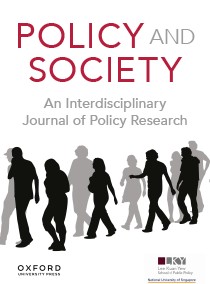问责推动者?跨国行动主义在使用多边开发银行申诉机制中的作用
IF 6.1
1区 社会学
Q1 POLITICAL SCIENCE
引用次数: 0
摘要
对国际组织的透明度、问责制和民主的担忧日益增加,促使国家和非国家行为体加强问责机制,使全球管理者承担责任。关于这一主题的大部分学术关注都集中在问责制的杠杆如何能够改善寻求改进决策的会员国和行为体的全球治理,从而改善产出。本文考察的是个人和社区,或被忽视的公众,如何利用问责机制,为他们提供环境和社会危害的追索权。它探讨了多边开发银行申诉机制的使用,以检查哪些行为者使用它们(例如,国际非政府组织,非政府组织或项目受影响的人[PAP])以及产生了什么效果。为了探讨这些问题,我们分析了向世界银行集团申诉机制提交的500起投诉;亚洲、非洲和美洲开发银行;以及欧洲复兴开发银行。结果表明,追索权的要求主要来自一系列地方行动者,但发展中国家的行动方案如果得到国际和国家非政府组织的援助,往往会从申诉机制过程中取得积极成果。因此,这些发现表明,跨国积极分子可以作为“问责推动者”发挥促进作用,国内代表在解决问题的过程中特别有效,而国际代表在合规过程中特别有效。本文章由计算机程序翻译,如有差异,请以英文原文为准。
Accountability enablers? The role of transnational activism in the use of the multilateral development bank grievance mechanisms
The proliferation of concerns over the transparency, accountability, and democracy of international organizations has contributed to an increase in accountability mechanisms to hold global governors to account, by both state and non-state actors. Much of the scholarly focus on this subject has been on how levers of accountability can improve global governance for Member States and actors seeking to improve decision-making, and thus outputs. This article instead examines how individuals and communities, or neglected publics, are using accountability mechanisms designed to provide them with recourse for environmental and social harm. It probes the use of the grievance mechanisms for the multilateral development banks to examine what kinds of actors use them (e.g., international nongovernmental organizations, nongovernmental organizations, or project-affected people [PAP]) and to what effect. To explore these questions, we analyze 500 complaints submitted to the grievance mechanisms of the World Bank Group; the Asian, African, and Inter-American Development Banks; and the European Bank for Reconstruction and Development. The results demonstrate that claims for recourse come from a range of primarily local actors, but that PAP in developing countries will more often achieve positive outcomes from the grievance mechanism process if they receive assistance from international and national nongovernmental organizations. These findings therefore demonstrate that transnational activists can fulfill a facilitating role as “accountability enablers” and that domestic representatives are especially effective in problem-solving processes, while international representatives are especially effective in compliance processes.
求助全文
通过发布文献求助,成功后即可免费获取论文全文。
去求助
来源期刊

Policy and Society
Multiple-
CiteScore
18.00
自引率
6.50%
发文量
43
审稿时长
30 weeks
期刊介绍:
Policy and Society is a prominent international open-access journal publishing peer-reviewed research on critical issues in policy theory and practice across local, national, and international levels. The journal seeks to comprehend the origin, functioning, and implications of policies within broader political, social, and economic contexts. It publishes themed issues regularly and, starting in 2023, will also feature non-themed individual submissions.
 求助内容:
求助内容: 应助结果提醒方式:
应助结果提醒方式:


